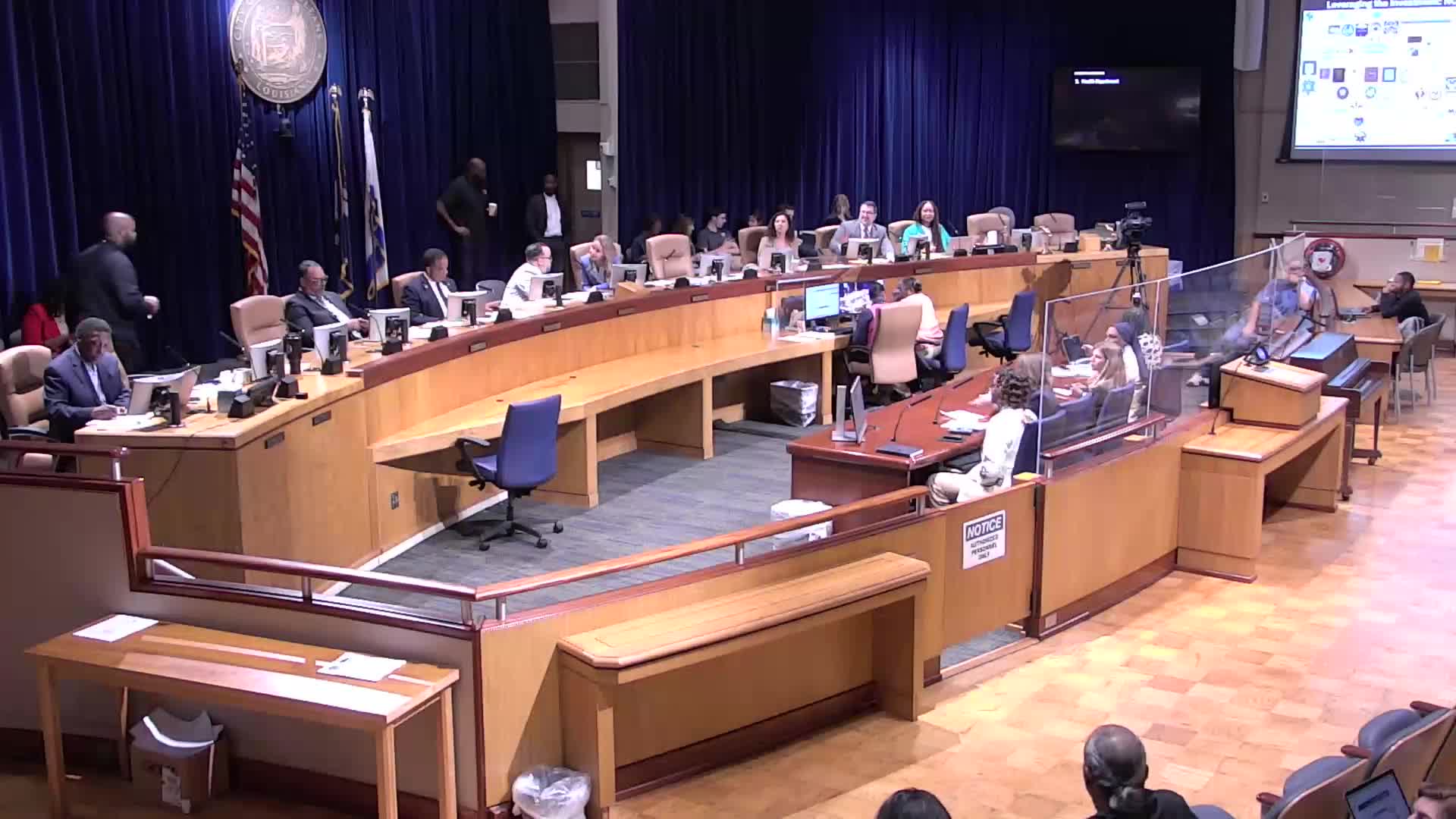Health department and community groups urge council to reject steep cuts, cite services that prevent violence and support mothers and children
Get AI-powered insights, summaries, and transcripts
Subscribe
Summary
The New Orleans Health Department detailed programs serving mothers, children, people with substance use disorder and violence survivors and warned a proposed 27% cut to its general fund would slow or halt services; dozens of community groups testified in support of continued or increased funding.
The New Orleans Health Department told City Council on Wednesday that a proposed 27% reduction to its general fund would force painful tradeoffs across programs that the department and community partners say prevent violence, support new mothers and connect people experiencing mental health and substance-use crises with non-police responses.
Health Director Dr. Vigna (named in the hearing transcript as the department director) presented a multi-year strategy that included maternal-child health programs, mobile crisis response, harm reduction, violence-prevention partnerships and chronic-disease work. "We continue to strengthen our capacity to delineate and to address key drivers of health inequities," Dr. Vigna said, listing a slate of programs the department runs in partnership with hospitals, nonprofits and state and federal funders.
Why it matters: The department said it accounts for about 1.3% of the city's general fund and that 70% of its roughly 110 employees are grant-funded; the proposed cuts would affect city-funded positions and programs the department argues are upstream investments that reduce downstream public safety and emergency costs.
Key figures and programs cited at the hearing included: - A requested general-fund reduction described in the presentation as a 27% cut to NOHD’s general fund and an associated proposed reduction of roughly $3 million in unclassified operating expenditures. - Mobile Crisis Intervention Unit: described as a successful non-law-enforcement response to behavioral-health crises; the unit fields roughly 3,000 calls a year and has a high rate of nonviolent, successful interactions, the department said. - Family Connects (universal postpartum home visiting): the department said the program reached more than 50% of births during its initial rollout in Orleans Parish and aims for 70% and ultimately universal coverage; multiple presenting partners said the program improves postpartum outcomes and reduces emergency room use for infants. - Sobering center operated by Odyssey House: presenters requested level funding of $1,475,000; Odyssey House reported serving around 659 unduplicated individuals across 3,353 interactions in nine months and an estimated cost per interaction of $330.
During a long public comment period, more than two dozen healthcare providers, nonprofit leaders and advocacy groups urged the council to reject the cuts or to restore funding. Remi Abiodun of the Big Easy Budget Coalition told the council, "The proposed budget cultivates conditions where crime will go up not down," and asked members to fund prevention and social services rather than cuts. Several hospital-based and community programs — including UMC’s trauma recovery center, Ochsner’s Family Connects site and violence-intervention providers — described measurable effects in preventing re-injury and connecting families to care.
Speakers repeatedly framed public safety as public health. Samara Smith of Step Up Louisiana said, "When we say public safety is public health, that should mean more money for the health department, not less," and urged an expansion of community-based violence intervention and workplace-health programs.
The council heard that some federal and state funding streams may help sustain specific programs, and the health department described efforts to bill Medicaid for some services and to leverage opioid settlement funds and ARPA grants. The department also noted a one-time settlement payment — described at the hearing as roughly $5 million from a Wisner settlement with LSU and Tulane — that the administration had proposed placing in the general fund and earmarking for health and related needs.
What was not decided: No formal votes were recorded on funding during the session. Council members indicated an interest in pursuing alternatives to blunt the impact of cuts (revenue ideas, ARPA reallocation, centralized grants administration), but the health department said many cuts would produce delayed or reduced access to services such as postpartum home visiting, violence recovery and mobile crisis response.
Next steps: Health department staff and dozens of community partners asked the council to consider a smaller budget reduction or alternative revenue to avoid a "shave" of programs that department staff said generate measurable public-safety and health returns.
